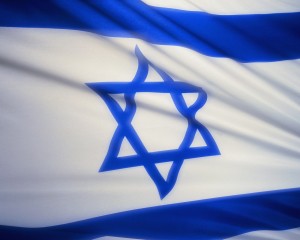Wednesday
Jul282010
Israel-Palestine: Abbas' Conditions, Netanyahu's "Eastern Front" Response
 Wednesday, July 28, 2010 at 8:40
Wednesday, July 28, 2010 at 8:40  On Sunday the leader of the Palestinian Authority, Mahmoud Abbas, said that he was under pressure from the international community to start direct talks but added that negotiations would collapse from the first minute if there were no "clear and specific references".
On Sunday the leader of the Palestinian Authority, Mahmoud Abbas, said that he was under pressure from the international community to start direct talks but added that negotiations would collapse from the first minute if there were no "clear and specific references".Ahead of Thursday's Arab League foreign ministers' summit in Cairo, these references should be seen as a future Palestinian state based on pre-1967 borders and a construction freeze both in the West Bank and in East Jerusalem.
To Lift The Spirits (Sequel): Dancing with Matt…in Gaza
In response, speaking at the Knesset's Foreign Affairs and Defense Committee, Israeli Prime Minister Benjamin Netanyahu blamed the PA for "stalling direct talks and relying on the Arab League for support." He said that first "they [Palestinians] said it was the [settlement] freeze, now it's the borders issue."
On the security front, Netanyahu put a double-edged agenda: First he said, "We won't compromise security and that's why the U.S. administration has been notified of our security needs." The he asserted, "Arrangements reached with the Palestinians must be such as to withstand any changes in the political and security Middle East map," and he went further, "The Palestinians must hold firm even if an eastern front develops, as was the case, for example, before the fall of Saddam Hussein's regime."
What was meant by the "eastern front"? Any guesses?
No Israeli politician is likely stop with only an "eastern front". Israel's Defense Minister Ehud Barak added a "north front". In an interview with The Washington Post, he said that the IDF will attack Lebanese government institutions if Israel is again subjected to rocket attacks and continued:
We will not run after each Hezbullah terrorist or launcher....We will see it as legitimate to hit any target that belongs to the Lebanese state, not just to Hezbullah.
And Foreign Minister Avigdor Lieberman was back on West Bank settlements, calling for new building to resume once the moratorium ends September 26:
From September we must resume normal life here. We do not have any intention to change the demographic situation or to create a provocation, but only to provide a normal life for the people that came here under the policies of [past] government[s].
A day before Lieberman's visit, Netanyahu had said he had not intention to extend the 10-month moratorium, saying "the slowdown was limited in time: It has not changed and that's how it will be."
So Netanyahu's "eastern front" complements the demands elsewhere on "security" and on settlements. All of this puts up a formidable wall to Abbas' conditions for agreement to direct talks.




